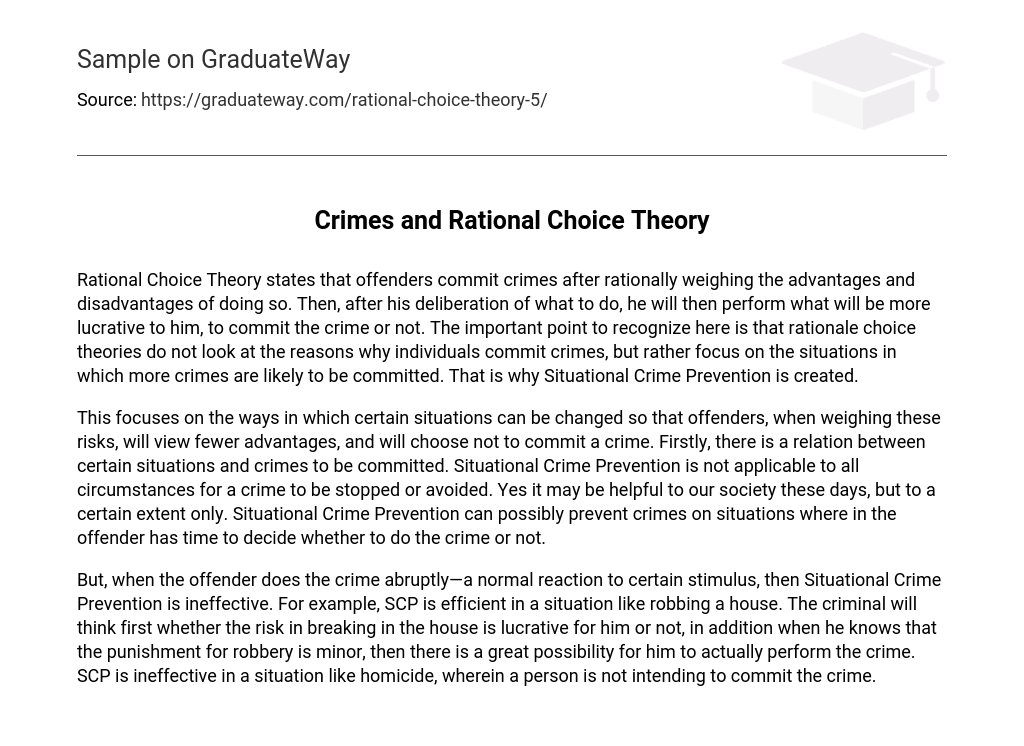Rational Choice Theory states that offenders commit crimes after rationally weighing the advantages and disadvantages of doing so. Then, after his deliberation of what to do, he will then perform what will be more lucrative to him, to commit the crime or not. The important point to recognize here is that rationale choice theories do not look at the reasons why individuals commit crimes, but rather focus on the situations in which more crimes are likely to be committed. That is why Situational Crime Prevention is created.
This focuses on the ways in which certain situations can be changed so that offenders, when weighing these risks, will view fewer advantages, and will choose not to commit a crime. Firstly, there is a relation between certain situations and crimes to be committed. Situational Crime Prevention is not applicable to all circumstances for a crime to be stopped or avoided. Yes it may be helpful to our society these days, but to a certain extent only. Situational Crime Prevention can possibly prevent crimes on situations where in the offender has time to decide whether to do the crime or not.
But, when the offender does the crime abruptly—a normal reaction to certain stimulus, then Situational Crime Prevention is ineffective. For example, SCP is efficient in a situation like robbing a house. The criminal will think first whether the risk in breaking in the house is lucrative for him or not, in addition when he knows that the punishment for robbery is minor, then there is a great possibility for him to actually perform the crime. SCP is ineffective in a situation like homicide, wherein a person is not intending to commit the crime.





